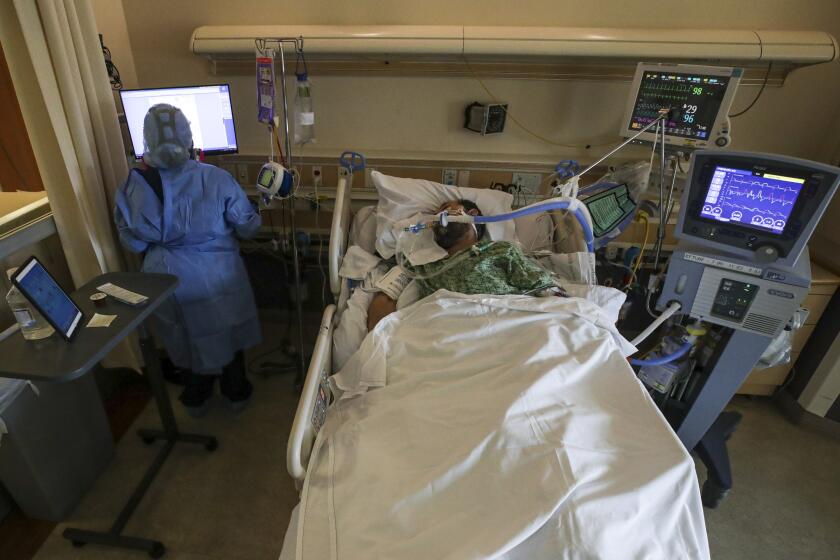A Therapy That Skirts Science
There is a small plaza on Massachusetts Avenue in Washington, D.C., that is dominated by a large green-bronze statue of a contemplative man in a throne-like chair. Most passersby wouldn’t recognize him. But the medical ideas he developed about 200 years ago are popular throughout the world. He is Samuel Hahnemann, a German physician sometimes known as the father of homeopathic medicine.
Like chiropractic or naturopathy (a medical theory based on natural therapies instead of drugs and surgery), homeopathy is not based on modern scientific or biomedical fact. Rather, it stems from an ideology developed by Hindu physicians as far back as the 10th century BC. As developed by Hahnemann, homeopathic treatment is based on the idea that large doses of a substance cause a symptom and that minuscule amounts of the same substance will cure it.
Hahnemann promoted the idea that homeopathic remedies would replace disease with a similar but much weaker version of the illness, one that the body’s “vital force” could eliminate. He believed that disease represents an inner disturbance that prevents the human body from healing itself. And he concluded that only a small stimulus was necessary to jump-start the healing process.
Hahnemann and his early followers conducted lengthy series of “provings” in which healthy people were subjected to herbs, minerals and other substances to identify a broad range of symptoms associated with such nuisances as colds, fever, congestion and the like. Their voluminous findings about symptoms and their causes were published in a set of books called the Homeopathic Pharmacopeia, which has served as the bible of homeopathic medicine ever since.
Homeopathic remedies are made from plants, animal products, minerals or chemicals diluted numerous times, usually in water. The compound is shaken vigorously between each dilution. A one-in-100 dilution solution, for example, means that one drop of a substance is placed in 99 drops of water or alcohol. After lengthy shaking, one drop of the new solution is mixed with another 99 drops of water or alcohol, and the mixture is again shaken vigorously.
This process may continue 30 or more times, resulting in a solution more than a billion times more dilute than a solution of one molecule of salt in an ocean. This degree of dilution means that, typically, less than one molecule of the original substance remains.
Now, there is a law in science called Avogadro’s Number, which states that if there is less than one molecule of a substance, there isn’t anything there. So how do homeopathic doctors support the claim that “empty” water can relieve symptoms?
The official answer from the homeopathic profession is that the water retains a “memory” of the substance. The issue of how recycled water deals with its many other memories is not explained. Moreover, liquids are not known to have memory. The good news, however, is that even the baby cannot overdose on homeopathic remedies. So they are mostly safe.
For medical doctors, homeopathy has seemed rather innocuous. In the past few years, however, some homeopaths have started treating patients with cancer and other serious illnesses, raising concerns among traditional medical doctors.
More commonly, homeopathic treatments are used for all manner of less-critical ailments, such as colds, headaches, leg cramps, infertility, cystitis, cramps, joint pain, bruises and the like.
But do they work? Some studies of homeopathic remedies reported in medical journals describe benefits, but most of these studies have been challenged by scientists for flaws in research methods. There is no conclusive evidence either way.
Logic does not support the idea that homeopathic remedies actually have any effect. Homeopathic products do not require prescriptions; they are available over the counter. They are not regulated by the Food and Drug Administration, so they need not be tested to demonstrate their therapeutic effectiveness. Given these features, why is homeopathy popular in the U.S. and around the world today?
Some hospitals and insurance companies use homeopathic doctors as primary-care physicians. And members of the British royal family, including Prince Charles, for four generations have sought care from homeopathic physicians, at least for minor ailments. Many people swear they’ve been cured of discomforting symptoms of colds, headaches, fever, asthma or more serious illnesses using homeopathic products.
Some homeopaths are MDs, but a medical degree is not required to practice homeopathy. Two years of training is typically required to get certification in homeopathy, which focuses primarily on learning to use the Homeopathic Pharmacopeia.
It is difficult to tell whether such cures result from the homeopathic remedies or from a placebo effect, similar to patients in medical studies who feel better on sugar pills. Homeopaths tend to spend much more time with patients than do most medical doctors, and such attentiveness can provide a great deal of comfort and soothe many ills.
For patients with illnesses that are not life-threatening or that present moderate symptoms, homeopathic remedies will do no harm. And most minor health problems disappear on their own anyway. An average cold, for example, runs its course in about seven days. The key caution is not to depend on homeopathic remedies when a symptom might represent a more serious problem. Don’t delay proven medical therapy for a problem that might threaten your good health.
*
Barrie R. Cassileth, PhD, is chief of integrative medicine at Memorial Sloan-Kettering Cancer Center in New York She can be reached at BarrieC@Juno.com. Her column appears the first Monday of the month.



